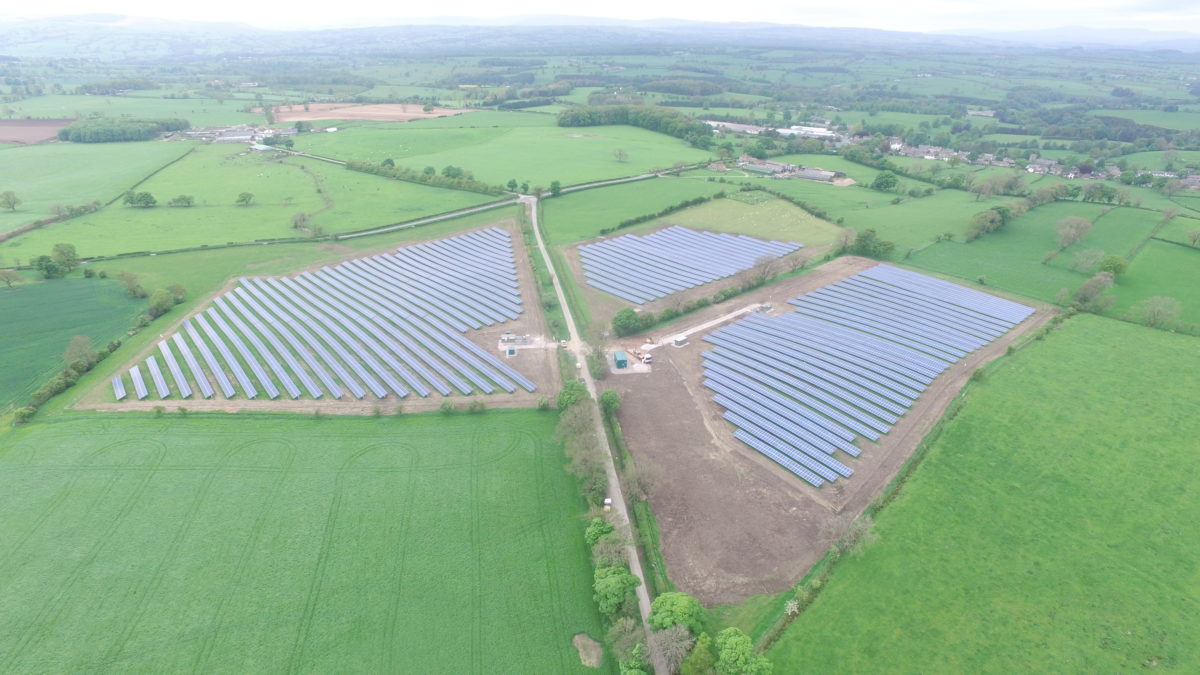In a public statement, the Welsh Government and a number of energy and environmental organizations, including The National Trust, Renewable UK and Sirius Renewable Energy, underlined the crucial importance of solar and onshore wind. They are calling for a change to the U.K. Government’s current, dismissive, attitude to the technologies.
They want to see a policy framework, which supports development of the most affordable renewable technologies, with solar and onshore wind again allowed to compete in the Contract for Difference mechanism.
“We believe that lowest cost technologies, such as onshore wind and solar, present the best opportunities to manage the costs of generation to energy bills. They also offer Welsh businesses and our rural economy the opportunity to be more resilient and self sufficient in a future outside of the EU,” read the statement.
It goes on to say that while over £9 billion has been invested in renewables, which served to both support a high uptake of related technologies, and drive prices down, the Conservative Government’s 2015 decision to so suddenly and drastically halt support of both solar and onshore wind, has “decimated” large parts of the sector.
“No new applications for planning permission have been made in 2016 within the Strategic Search Areas designated in Wales, and a number of developments with planning consent are not progressing,” read the statement. “Larger scale ground mounted solar developments are also no longer being taken through the planning system, with the last consented schemes being built out by the end of March 2017.”
Planning applications for solar projects under 50 MW, including community solar and rooftop schemes, are devolved to the Welsh Government, with decisions normally being made by local authorities. However, on the back of the decreased support, they are no longer said to be seen as attractive investment opportunities.
In addition, the statement says the lack of support in these areas is threatening the country’s ability to meet its 2050 climate goals. “This is at a time when the future looks more uncertain than ever as a result of the decision to leave the EU, and the need for resilient low carbon business models becomes even more urgent,“ continued the statement.
It concluded, “We ask the UK Government to recognise the additional social and economic value provided from distributed generation within the Contract for Difference regime, in the same way as is required in Wales under the Wellbeing of Future Generations Act.”
Popular content
Declining installations
Out of a cumulative installed solar PV capacity of 12.720 GW in the U.K. (as of H1 2017), Wales accounts for just 939 MW across approximately 52,000 sites, according to the U.K.'s latest energy statistics, which includes Q2 2017.
This figure has grown from no installed capacity in 2009, to 3 MW in 2010, 62 MW in 2011, and 917 MW in 2016. This year, just 22 MW have been installed in Q1 and Q2 collectively.
Despite its lack of support, the U.K. Government recognizes the positive impact of solar. In a special feature article on renewable electricity in the country published this September, it found that in 2016, all regions, including Wales (+413 MW), displayed “considerable growth” in generating capacity, with the growth in overall renewables capacity in these regions primarily coming from solar (46%) and onshore wind (28%).
This did not help recently, with the U.K. Government again failing to make any mention of solar or onshore wind in its most recent, autumn, budget, unveiled last week. It did, however, announce generous tax breaks for fossil fuels.
Furthermore, on the same day, it was announced that the controversial Hinkley Point nuclear plant will cost an additional £25 billion more than first calculated – equating to an extra £15 a year on a typical household’s energy bill.
This content is protected by copyright and may not be reused. If you want to cooperate with us and would like to reuse some of our content, please contact: editors@pv-magazine.com.



1 comment
By submitting this form you agree to pv magazine using your data for the purposes of publishing your comment.
Your personal data will only be disclosed or otherwise transmitted to third parties for the purposes of spam filtering or if this is necessary for technical maintenance of the website. Any other transfer to third parties will not take place unless this is justified on the basis of applicable data protection regulations or if pv magazine is legally obliged to do so.
You may revoke this consent at any time with effect for the future, in which case your personal data will be deleted immediately. Otherwise, your data will be deleted if pv magazine has processed your request or the purpose of data storage is fulfilled.
Further information on data privacy can be found in our Data Protection Policy.